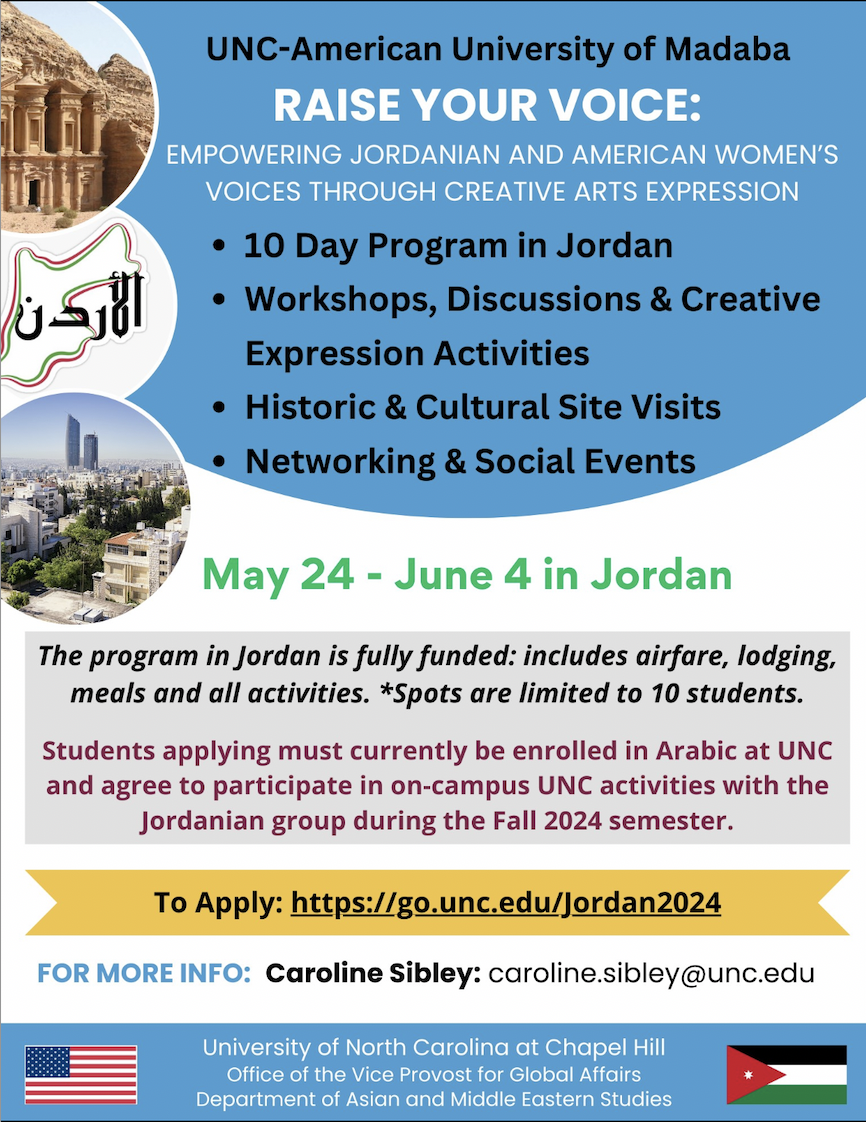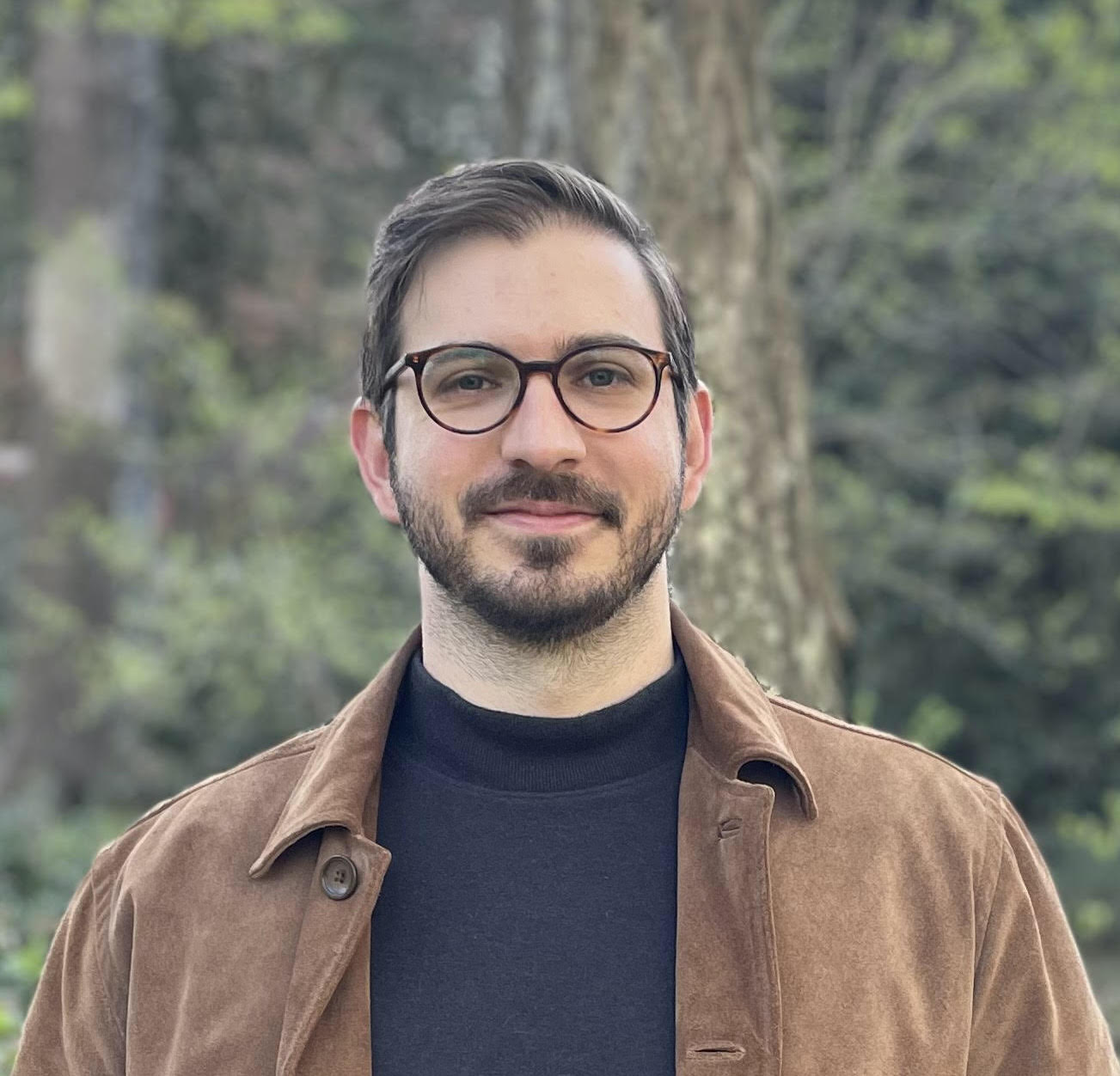 For Claudia Yaghoobi, a passion for learning and education was instilled in her from a young age. Now an assistant professor of Persian studies at the University of North Carolina at Chapel Hill, Yaghoobi grew up in an Armenian family in Tehran, Iran. Yaghoobi’s family was therefore part of a small ethnic and religious minority in the predominantly Muslim community. However, her parents never let the challenges of their minority status interfere with their children’s education, enrolling Yaghoobi and her siblings in a variety of extracurricular activities, including English language schools.
For Claudia Yaghoobi, a passion for learning and education was instilled in her from a young age. Now an assistant professor of Persian studies at the University of North Carolina at Chapel Hill, Yaghoobi grew up in an Armenian family in Tehran, Iran. Yaghoobi’s family was therefore part of a small ethnic and religious minority in the predominantly Muslim community. However, her parents never let the challenges of their minority status interfere with their children’s education, enrolling Yaghoobi and her siblings in a variety of extracurricular activities, including English language schools.
Yaghoobi eventually earned her master’s degree in English language and literature from the Islamic Azad University (IAU) in Tehran. After teaching in several language schools across the city, she returned to IAU as an assistant professor of English language for nine years.
Yaghoobi’s family had begun making plans to immigrate to the United States shortly before September 11, 2001, but all applications were put on hold for five years after the terrorist attack. She was ambivalent about whether or not to continue the process, a decision made more difficult by the success she was finding in her academic career. While she didn’t want to lose that momentum in her professional life, an incident at IAU urged her to move forward with her family’s applications.
“One morning I was on my way in to teach, and I was stopped by a morality guard and asked to remove my makeup,” Yaghoobi says. “It was the most humiliating experience of my life, standing in front of all my students and not being treated like the intellectual I was. I knew then that I had to leave Iran.”
It wasn’t until 2006 that Yaghoobi and her family were able to leave Iran. Yaghoobi spent a short time living in Austria, and then settled in Los Angeles near family and set out to find a teaching position that would allow her to continue her scholarship in the United States. Even though she spoke English and had worked as an instructor for years, Yaghoobi’s previous credits from IAU would not transfer in the United States. She soon realized she would have to earn a second master’s degree.
“I was working full time at CVS Pharmacy to help provide for my family, studying for my master’s degree at California State University of Los Angeles and adjusting to American customs and lifestyle all at the same time,” Yaghoobi says. “It was a stressful time, but I was determined to be an active agent of my own life.”
After earning her master’s at Cal State LA, Yaghoobi began her doctoral studies in the comparative literature program at the University of California, Santa Barbara. She completed her degree, with an emphasis on feminist studies, in 2013. At UC Santa Barbara, Yaghoobi had the opportunity to create coursework and serve as a teaching associate. After completing her doctorate, Yaghoobi taught courses on Iran and the Middle East in a tenure track position at Georgia College and State University.
This summer, Yaghoobi accepted a position as Roshan Institute Assistant Professor in Persian Studies at UNC, an appointment made possible by an endowment from the Roshan Cultural Heritage Institute. “I am so grateful to the Roshan Institute for this opportunity,” Yaghoobi says. “It was always a goal of mine from the time I came to the United States to teach at a major public university with resources and an academic environment such as UNC has.”
The Roshan Cultural Heritage Institute has made it possible to expand and promote the study of Persian language and culture at UNC, initially through an endowment to support graduate students with the Roshan Institute Fellowships for Excellence in Persian Studies. The Roshan Institute has also supported Carolina Performing Arts programs relating to Persian culture. Now Yaghoobi, alongside Persian Lecturer Shahla Adel, will be implementing the new Persian minor at UNC within the Department of Asian Studies. In this role, she will teach courses in Persian language and literature while continuing her research into the place of social and cultural minorities in modern Iranian society.
Yaghoobi’s current work investigates the representation and stigmatization of female partners in sigheh(temporary marriages) in Persian writing and film. Her new book, Subjectivity in ʿAttār, Persian Sufism and European Mysticism, is forthcoming from Purdue University Press in 2017.
By Jamie Gnazzo ’13






